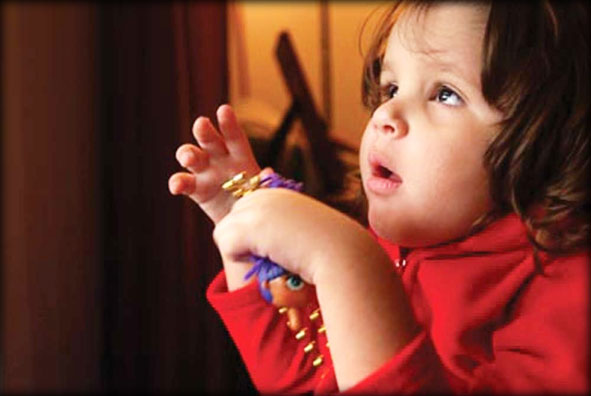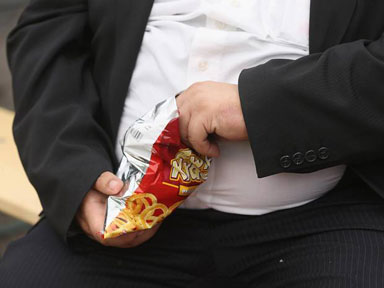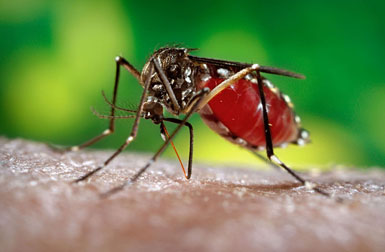|

Autism and the value of adaptive functional living skills
by Ishanthi Perera
Autism is a neuro developmental disorder, characterised by impaired
social interactions, impaired verbal and non-verbal communication and by
restricted and repetitive or stereotyped behaviour. It typically
presents before a child is three years old, although in some instances
children appear to regress after developing along an age-typical
trajectory.
Along with the characteristic symptoms of autism, many individuals
with the disorder also have deficits in their ability to function
independently and need extensive assistance or instruction to complete
daily living activities.
 It is important to teach adaptive functional living skills to such
individuals to increase their independence, provide the ability to make
choices and to alleviate stress on the family. It is important to teach adaptive functional living skills to such
individuals to increase their independence, provide the ability to make
choices and to alleviate stress on the family.
There are four primary skill sets that should be taught to
individuals with autism and two secondary skill sets that can be taught
depending on the individual's functioning.
The primary skill sets are:
Basic living skills
This includes basic self-help, self-care, self-management, hygiene
routines, and core communication skills. These skills are considered a
prerequisite for any functional skills program for any individual
regardless of age, setting or disability.
These essential skills, if not mastered, will have a profound impact
on an individual's ability to live independently, to be successful in
school, and to take advantage of various social and recreational
activities throughout their life.
Home skills
Regardless of the individuals living arrangement (living with
parents, in a group home or independently), home skills provide
essential skills required for living in the home. Some examples include
meal preparation, laundry and general housekeeping.
Community participation skills
Participating in the community begins with learning to physically
navigate the environment in a safe manner as well effectively
communicate with people encountered while walking or while being
transported. To be able to shop in grocery and department stores
(independently or with a caregiver), use public transit or travel in a
private vehicle in a safe manner and eat a fast food or sit-down
restaurants requires a wide variety of skills.
The ability to tell time and use time related concepts, making and
keeping appointments and other skills to help the individual interact
with others in the community are also considered.
School skills
It is important for the individual to be an active participant in a
variety of skills, routines and social situations in educational
settings. These skills are essential in striving for independence and
successful functioning in different types of classrooms, in all parts of
the school campus, and with peers and various staff. Some examples
include following instructions, following routines and social skills.
The two secondary skill sets are the following:
Vocation skills
It is important to teach vocation skills if an individual is of a
higher level of functioning and can learn skills that will enable that
individual to find meaningful employment. Vocation skills need to be
paired with a workplace that will be willing to accommodate the
individual.
The individual, family, clinician involved with training and the
workplace management need to agree upon certain rules and guidelines
which both the individual and workplace will follow and create a job
task list for the individual to independently execute.
Independent living skills
These are skills that an individual needs to learn to live
independently (or semi-independently). Most individuals with autism
typically live with a family member who cares for them; although there
is a certain population that also find themselves in a group home type
setting. It is important that these individuals learn independent living
skills to gain independence with their lives and the choices they make
as well as to be safe.
Adaptive Functional Living Skills (AFLS) should be taught when the
child is young and more malleable to learn. When routines for learning
these skills are put in place early, it is easier for the child to
understand and follow, for the clinician to teach and for the family to
maintain.
As the child gets older, if any maladaptive routines and behaviours
exist (or lack of any routine exist) they become stronger and more
persistent.
The longer these behaviours are exhibited, the longer they will be
reinforced. The longer such behaviours are reinforced, the harder it
will be to replace those behaviours.
Thus, the individual will be more resistant to change and may exhibit
behaviours such as aggression or withdrawal if the existing situation is
altered.
Responsibility
As the individual gets older, it becomes harder for the family to
continue shouldering the responsibility of carrying out adaptive living
functions for the individual and this can cause excessive stress and
burnout for the main caregiver or the family as a whole.
As the main caregivers get older and ultimately become unable to care
for the individual with autism, the individual is often left helpless,
as they do not have the skills to help themselves or know how to receive
help from others. Furthermore, it becomes more challenging for
unfamiliar adults to assist adults with autism who have no AFLS (as
opposed to children). Other issues to keep in mind with this population
are the individuals’ inability to understand and accept change (e.g. A
different adult attending to them, a different living arrangement),
change related aggression as well as the risk of being taken advantage
of and abuse by unknown individuals.
Understanding how an individual learns is vital in deciding which
teaching strategy to use to teach adaptive functional living skills.
Furthermore, teaching these skills properly and accurately the first
time is imperative, as it is difficult for individuals with autism to
‘unlearn’ what they have already learned. If you or a family member will
benefit from learning adaptive functional living skills it is important
to connect with an experienced and qualified behaviour therapist to get
the process started.
The writer is a Consultant Behaviour Therapist.
‘Deadly’ diet and no exercise make obesity the ‘new norm,’ warns WHO
Worst countries include Greece, Portugal, Ireland and Spain, though
the UK isn't far behind
 A “deadly” epidemic of physical inactivity and diets high in fats,
salts and sugars has led to obesity and overweight becoming “the new
norm” throughout Europe, the World Health Organisation (WHO) has warned. A “deadly” epidemic of physical inactivity and diets high in fats,
salts and sugars has led to obesity and overweight becoming “the new
norm” throughout Europe, the World Health Organisation (WHO) has warned.
Up to 27 percent of Europe's 13-year-olds and 33 percent of
11-year-olds are overweight, officials said ahead of an EU summit in
Greece with a special focus on “the grave public health concern” of
childhood obesity. Countries with the highest proportion of overweight
11-year-olds included Greece, with 33 percent, Portugal (32 percent),
and Ireland and Spain, both with 30 percent.
Overall the UK is performing slightly better, but in Wales 30 percent
of 11-year-old boys are overweight.
The WHO's regional director for Europe, Zsuzsanna Jakab, said that
Europeans’ “perception of what is normal has shifted”.
“Being overweight is now more common than unusual. We must not let
another generation grow up with obesity as the new norm,” she said.
“Physical inactivity - coupled with a culture that promotes cheap,
convenient food high in fats, salt and sugars - is deadly.” Inactivity,
listed by the WHO as the fourth leading cause of death globally, is now
viewed as one of the major health threats affecting developed countries.
In the UK more than two thirds of people over the age of 15 were
insufficiently active, according to the WHO's latest data, from 2008.
It is recommended that adults get 150 minutes moderate-intensity
exercise per week, while children and adolescents should have an hour
per day, according to international guidelines.
Countries which were praised for efforts to “contain the epidemic” of
overweight and obesity included France, Norway, the Netherlands and
Switzerland.
Measures which had been a success included taxes and restrictions on
advertising of unhealthy foods, as well as the promotion of physical
activity, the WHO said.
WHO's program manager for nutrition, physical activity and obesity at
the European Regional Office Joao Breda said the food industry and
government could help, but “the urban planning sector” could also play a
part by building in a way that encouraged exercise by providing green
space and attractive walking routes, indoors and out.
“We need to create environments where physical activity is encouraged
and the healthy food choice is the default choice, regardless of social
group.
Physical activity and healthy food choices should be taken very
seriously in all environments - schools, hospitals, cities, towns and
workplaces,” she said.
- The Independent
'DenGone' to create dengue awareness
The country is presently facing the worst ever epidemic of dengue
fever, speaking to Sunday Observer, Chief Medical Officer CMC Dr.
Pradeep Kaiyawasam said. He said that this years’ outbreak was far more
worse than the one experienced last year.
 The worst affected are children and so far statistics have
demonstrated that over 50 percent of schools in Colombo have been found
to have dengue mosquitoes breeding in their premises. This has led to 70
percent of the patients being under 20 years of age. The worst affected are children and so far statistics have
demonstrated that over 50 percent of schools in Colombo have been found
to have dengue mosquitoes breeding in their premises. This has led to 70
percent of the patients being under 20 years of age.
To combat this menace we need a change of attitude and we do have to
start at the bottom, he said.
Speaking of the casualties he said that this year has so far seen
four deaths.
According to Dr Kariyawasam, 466 school children in the Colombo
municipal area have contracted dengue and 229 of them are children under
the age of five.
Over 47 percent of dengue cases in 2013 have been in the Western
Province.
Over 85 percent of mosquito breeding places are found in garbage or
discarded items. Most of the discarded items are usually found near
residences.
There has however been a noticeable drop in the number of cases
reported this year in comparison to 2012.
With the view to raise awareness of how the message of ‘prevention’
can be spread a massive walk will be organised shortly, he said.
As a totally new approach to combating this menace ‘DenGone,’ an
educational video game on dengue eradication has been launched by Union
Assurance.
This multimedia highlights the importance of prevention of dengue
targeting children and adults as well.
Union Assurance in collaboration with the Public Health Department of
the Colombo Municipal Council has developed this educational video game
which is especially designed to educate children about the risk of
dengue while highlighting the innovative and yet simple steps that can
be taken to eradicate it.
New variety of sausages are normal and super healthy, say scientists
Researchers say they have discovered a way to ferment sausages that
could turn the fatty meat product into a health food similar to
probiotic yogurts. The secret ingredient? A type of bacteria found in
baby faeces.
Although this may sound like either the stupidest or the most
disgusting thing you've heard scientists get up to in recent years, the
research is actually a fascinating insight into the common usages of
bacteria.
 Bacterial fermentation is already a big part in making sausages and
many varieties (including favourites such as pepperoni and salami) owe
their rich and tangy flavour to bacteria, which even create lactic acids
that stops the development of germs in the meat. Bacterial fermentation is already a big part in making sausages and
many varieties (including favourites such as pepperoni and salami) owe
their rich and tangy flavour to bacteria, which even create lactic acids
that stops the development of germs in the meat.
However, while traditional manufacturing techniques mostly rely on
the bacteria that occur naturally in raw meat, researchers in Spain have
been experimenting with adding probiotic bacteria instead.
The reason for the sensationalist headlines? They've been collecting
their samples from human faeces.
Now, to go over the why's and wherefore's of probiotic bacteria a
little, the term is one that's applied generally micro-organisms that
are believed to provide various health benefits. Ever since the
invention of the microscope, scientists have known that the human body
is full of various bacteria - a primitive form of life typically just a
few micrometres in length.
However, in the beginning of the 20th century scentists began to
suspect that the bacteria that lives in the human gut (typically around
100 trillion bacterial cells) might actually be helping us out, breaking
down the foodstuffs that our stomach acid can't handle and tackling the
nastier germs we might accidentally ingest.
In recent decades this has led to many theories that adding
probiotics to food products will help with a number of ailments -
anything from gastrointestinal disorders such as constipation to
allergic reactions. Although the science surrounding this is still not
entirely conclusive, this doesn't stop researchers finding new ways to
add the human-friendly bacteria to our food.
With this particular batch of sasuges the probiotic bacteria used
(specifically Lactobacillus and Bifidobacterium) was sourced from 43
stool samples from healthy babies up to six months old.
This may sound like a bizarre step to take but it is in fact a
standard (if not common) method for isolating probiotics. For example,
Lactobacillus rhamnosus GG, a commercial strain found in a variety of
yoghurts and ‘daily dose’ drinks, was first isolated from human faeces
in 1983. And why faeces? Because, if you're on the hunt for
naturally-occurring bacteria that have been busy helping the body,
looking in the material that has recently passed through the body of a
healthy individual is a good place to start.
Speaking about the research, co-author Anna Jofré, a food
microbiologist at Catalonia's Institute of Food and Agricultural
Research's (IRTA) food-safety program, added that “infant faeces are
natural samples, easy to obtain.”
After isolating the bacteria from their samples (this process
involves letting the bacteria develop in a petri dish - it's not simply
plucked from the faeces and dropped into the sausage), the researchers
created six batches of fuet - a Catalonian pork sausage that's similar
to chorizo minus the paprika.
- The Independent
|

